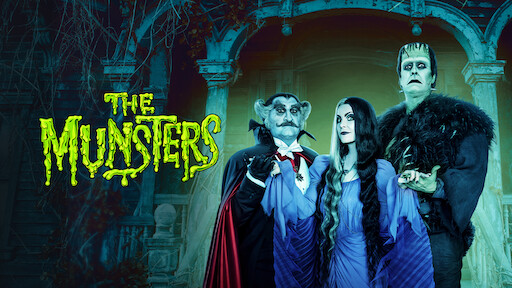The Munsters

Ryan Yau ‘22 / Emertainment Monthly Staff Writer
Rob Zombie’s The Munsters is clearly a passion project, for the sole reason that demand for a Munsters movie is likely below ground. But in watching the movie, it becomes clear that Zombie does not care about The Munsters, nor plot, character, or any certifiable standards of quality.
We follow Lily and her father, the Count. Lily is an ambiguously vampiric being who in one scene uses mind control. The Count is a Dracula-type whose hair curls at any axle, and who wants to marry off his daughter. Lily goes on dates with the likes of Count Orlok, who inexplicably brings her into an alley to do an odd techno dance with music. (In interest of conciseness, the word “inexplicable” and its variants will be omitted. For every event described in the article, assume it is not explicable.)
For the first leg of the movie, Zombie just does Frankenstein. A mad scientist is creating a man-made man (sure), and needs a brain (fine). The eligible craniums are two brothers: a mathematician called the “smartest man ever,” and a stand-up comedian who makes “your mom” jokes. In a playfully banal twist, the idiot brain is inserted, and the result is a frankenstein who is also a comedian—our titular Herman Munster.
Literal minutes after being birthed, Herman becomes a global rockstar sensation (the entirety of this is shown in a short montage). He is a rockstar who also tells “your mom” jokes. Lily witnesses his greatness on TV and falls in love through the screen, and eventually meets him at a show, where he instantaneously reciprocates feelings. They go on a date. What would be a major plot tension in a more straightforward adaptation happens in five minutes.
It can’t be conveyed how bad The Munsters is without mentioning its technical failures. Zombie opts for the most garish possible lighting scheme, coating every frame in egregious purples, greens, and pinks. This gives the entire movie an unappealing, hyperreal sheen– every backdrop looks like a screensaver on a greenscreen.
This does no wonders for the awkward, plastic-y costume design, outclassed by the 60s sitcom prosthetics in both realism and charm. The designs only accentuate the charismaless performances by basically every main character.
Back to the plot. The Count, unsatisfied with Herman as his daughter’s lover, concocts a brew to spawn a new love interest—a perfect man from amalgamated ingredients, and the magical counterpart to Herman’s science. But in mistaking the hair of Tarzan for the hair of Cheeta (Tarzan’s canonical chimpanzee sidekick), he spawns the ancillary ape. Admittedly the joke is so dull that it wraps around into being funny.
To get a sense of the movie’s humor: in one scene, Lily calls for her friend “Gilbert.” Gilbert is revealed to be a creature from the black lagoon in a trenchcoat, a gilled man. Gilbert never returns and is never spoken of again. What would be embarrassing in a marginally more competent movie actually works for The Munsters– every stupid gag is played so straight and with so little hesitation that it becomes conceptually hilarious.
Therein lies the key to the movie– nowadays most movies that lean towards camp do so with a meta-ironic wink-and-a-nod; on the other hand, The Munsters evokes the earnest poor quality of early 2000s Wayans Brothers parodies, where nothing is sacrosanct and every ill-informed choice seems completely oblivious to its own ineptitude. The type of unpretentious, unironic kitschiness The Munsters exhibits is admirable in the most dissonant way.
The Munsters fails at being compelling narratively or audiovisually, and it fails at being entertaining in lieu of its lack of compellingness. It is occasionally funny by the sheer ineffectiveness of its jokes, and the fact that it exists alone is mildly to moderately funny. It’s an exercise in sincere camp, recalling the earnest TV sensibilities of Cold War era sitcoms, and I enjoy that movies like this can still be made today. Perhaps there is no conclusion to be reached. I watched Rob Zombie’s The Munsters, and my life is exactly the same.